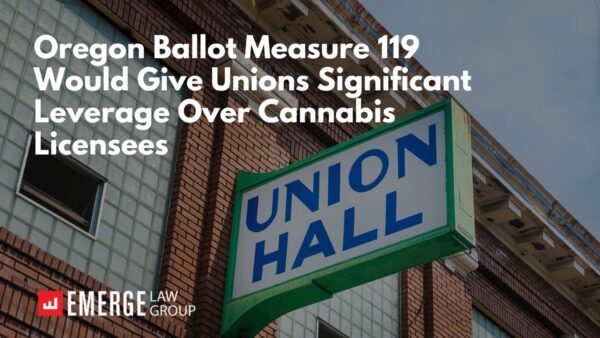CannaBeat is a curated biweekly selection of top news stories impacting business, research, and culture in the cannabis industry, crafted by Emerge Law Group.
Emerge’s Hot Take
California State Policy Update
California continues work on the regulatory structure of its cannabis industry. Many of the proposed bills could help the industry grow by increasing opportunities and reducing regulatory burdens. Below are a few bills that California is considering:
AB 374 – Consumption Lounges: This bill would permit local governments to allow the sale of non-cannabis foods and beverages (except alcohol) at consumption lounges. This would also allow lounges to sell tickets to concerts and other events. As discussed in our previous CannaBeat post HERE, this could create exciting opportunities for dispensaries.
SB 508 – CEQA & Licensing Reform: This bill proposes to remove the duplicative CEQA requirements between the state and local governments. This would streamline the application process and lessen the regulatory burden on operators.
AB 1111 – Cannabis Event Sales: This bill allows direct-to-consumer sales from small producers. “Small producer” means less than one acre outdoors. Indoors, “small producer” means 22,000 square feet of mixed-light tier 1 or 5,000 square feet of mixed light tier 2. Under this bill, small producers with the proposed license could sell their products to consumers up to 32 days per year at certain temporary events. This would give small farmers a huge opportunity to work directly with consumers and capture those lifetime buyers.
Other Noteworthy News
Subscribe
Subscribe to CannaBeat to receive essential weekly articles on news, business, and culture in the cannabis industry, delivered straight to your inbox.






